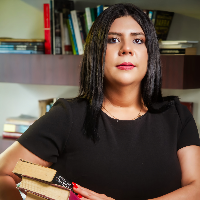3rd International Congress on
Psychology & Behavioral Sciences
March 26-27, 2026 | Osaka, Japan

Address: 1 Chome-9-15 Shinkitano, Yodogawa Ward, Osaka, 532-0025, Japan.
Psychology Congress 2026

Pontifical Catholic University of Puerto Rico, USA
Abstract:
Worldwide, the population of older adults is increasing. The World Health Organization (2022) estimates that it will double by 2050. Informal caregivers of older adults may experience contradictory impulses, overload, and multiple losses before the death of the older adult in their care. The purpose of this research was to identify and describe the affective ambivalence in informal caregivers of older adults in the face of loss and grief processes. The dimensions under study were: affective ambivalence, informal caregivers of older adults, loss processes and the grieving process. A qualitative approach methodology and an empirical phenomenological design were used to describe and understand what they have in common according to their experiences. Clark Moustakas' Multiangulation Model was used to describe, categorize and interpret through intentionality, temporality and intersubjectivity. Among the findings was the feminization of the role. Affective ambivalence is manifested through emotions, feelings, thoughts and behavior, including non-verbal language. The assumption of the role is highly influenced by an affective and moral factor, where a minimum of 35 hours per week are invested in caregiving without having training to perform the role. The tasks involve a great physical and emotional commitment, with little family and financial support. It was found that the participants experience objective and subjective overload to different degrees, but with similarity in the nature of the tension. Furthermore, as a consequence of the role, they experienced loss of life, loss of aspects of themselves, loss of objects, emotional losses, and losses linked to development. On the other hand, up to two types of grief were found simultaneously. Finally, the presence of affective ambivalence was found with the same intensity 13 years after the loss of the older adult under care
Biography:
Ivannys A. Cappas Pérez is from Puerto Rico. She is doctor in Clinical Psychology, obtained her doctoral degree in Psychology with a specialty in Clinical Psychology in 2023, from the Pontifical Catholic University of Puerto Rico, Ponce Campus. Furthermore, she has a bachelor degree from the same institution in Criminologist and Sociologist. She has a master’s degree in Criminal Justice. Additionally, she has vast experience in caregivers of the older adults population. Her research has generated interest worldwide and has been presented in multiple countries.
